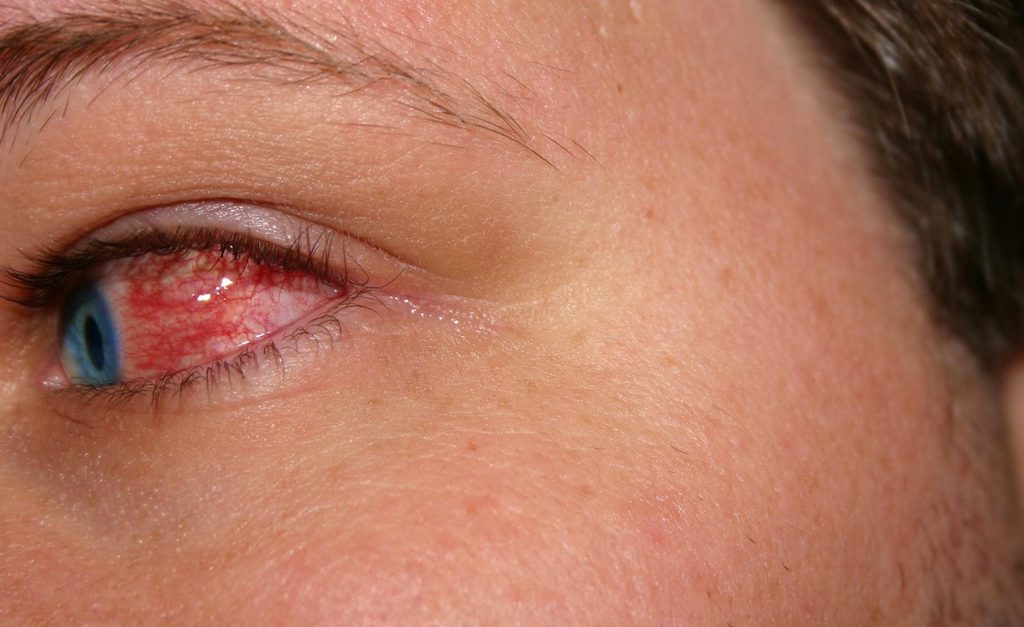
Your eyes are burning and you feel like something is stuck in one of them. You head to the bathroom mirror to check it out and notice they look red, puffy and have discharge coming from them.
What’s going on?
Pink eye (also known as “conjunctivitis”) occurs when the conjunctiva is irritated by an infection or allergies. You can get pink eye in just one eye or both and — unfortunately for your partner or family — it’s typically contagious, depending on the type.
Types of Pink Eye & Their Symptoms
There are three main types of pink eye: viral conjunctivitis, bacterial conjunctivitis and allergic conjunctivitis.
As the name indicates, viral conjunctivitis is very contagious. If you have a child or grandchild in preschool or elementary school, you’ve likely seen this type of pink eye first-hand. The symptoms include burning, red eyes and a watery discharge.
Bacterial conjunctivitis is another type of pink eye that’s also very contagious. It’s caused by a bacterial infection and can make your eyes feel sore and look red. You may also see pus coming out of the edges of your eyes. (Fun, right?)
The third type of pink eye — allergic conjunctivitis — isn’t contagious. It can be caused by an allergic reaction to pollen, animals, cigarette smoke, car fumes, or pool chlorine. Your eyes will feel itchy, look red and puffy, and you might tear up.
If you wear contacts, switch to glass as soon as you start experiencing pink eye symptoms. Throw your contact lenses away if you were wearing them when you got pink eye.
Treating Pink Eye
The treatment for pink eye will depend on the type of conjunctivitis. For viral conjunctivitis, your body will typically fight it off on its own. In the meantime, a cool, damp washcloth can help.
For bacterial conjunctivitis, your ophthalmologist may prescribe an antibiotic eye drop. If you have viral or allergic conjunctivitis, that same eye drop won’t help.
Are allergies causing your conjunctivitis? Your ophthalmologist may recommend an allergy medication or a certain type of eye drop for relief (topical antihistamine and vasoconstrictors).
Your ophthalmologist can recommend the best treatment, based on your symptoms.
Preventing Pink Eye
To avoid spreading pink eye to others (or getting it yourself), wash your hands often and avoid touching your eyes.
Also, make sure to:
- Use clean towels or washcloths when you take a bath or shower
- Throw away any make-up that came in contact with your eyes when you had pink eye (eye liner, mascara, etc.)
- Regularly change your pillowcases
- Avoid sharing personal items with others that have come in contact with your eyes
If your child or grandchild has pink eye symptoms, keep them home from school until it clears up.


